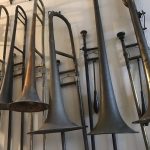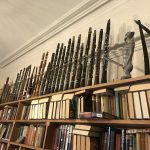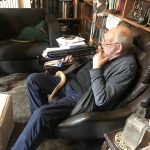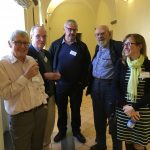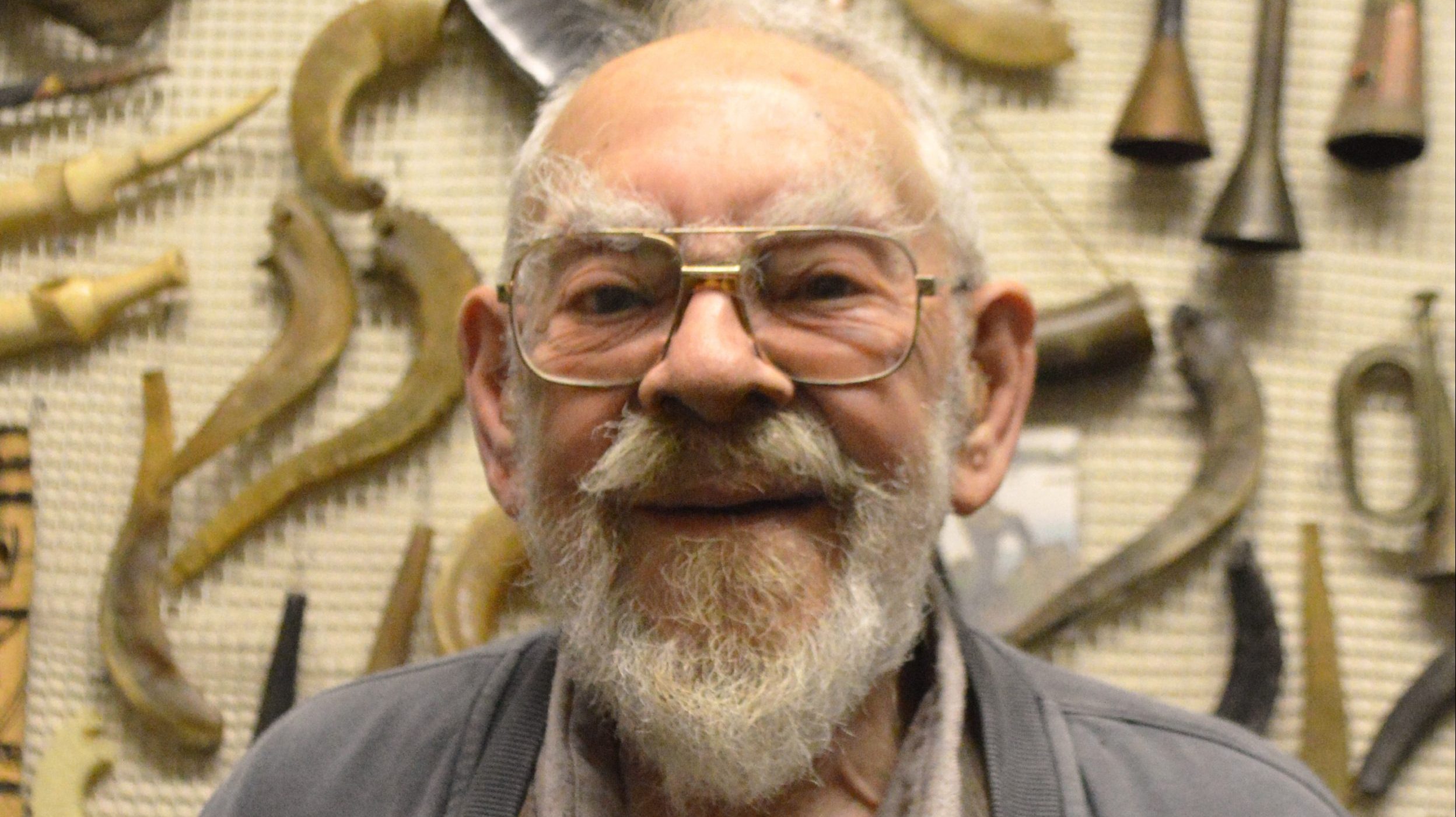
Jeremy Montagu 1927-2020
Lecturer at University of Oxford (UK),
Curator of the Bate Collection of Musical Instruments,
Professional conductor, horn player, and timpanist,
Author of countless books and articles on musical instruments
Remembering Jeremy Montagu
Jeremy Montagu was a researcher, a writer, a teacher, a scholar, a musician, a conductor, and a friend to many. He explored the world searching for trumpet treasure, and liked to learn about about all sorts of other instruments as well. He liked to solve their mysteries: how they came to be, how they were constructed, what they meant to the people that used them, and how they evolved (changed) over time. Along the way, Jeremy collected an amazing number of instruments which could be seen displayed in his home: over 2,500 lip-blown (brass), reed (woodwind), string, and percussion instruments from across the ages. Jeremy wrote down what he learned in countless books about musical instruments, so that others could benefit from his knowledge. He was also a teacher and curator (caretaker) of the Bate Collection of Musical Instruments (a museum of musical instruments) at the University of Oxford in England.
He started off as a musician, playing the French horn and timpani, and then became a conductor, leading an orchestra in what we now call "period performance," which means playing the music in a way that tries to get close to how the music might have sounded in the time period that it was written. This is done in several ways: by studying details about the music itself, by reading what people from the time wrote about how it was played, and by learning how to play the instruments that people were using at the time. This is now a very common way for orchestras to play "early" music, and Jeremy was one of the first to conduct orchestras in this way.
One of Jeremy's most recent books, The Shofar, was particularly helpful to us in creating teacher resources for Chapter 4 of Around the World in Twenty-One Trumpets. Jeremy himself played the shofar in his synagogue, and can be seen below playing the calls and describing some of the different ways that they are played today.
We can't overstate our gratitude to Jeremy, for his love for learning, and his love for lip-blown instruments!

